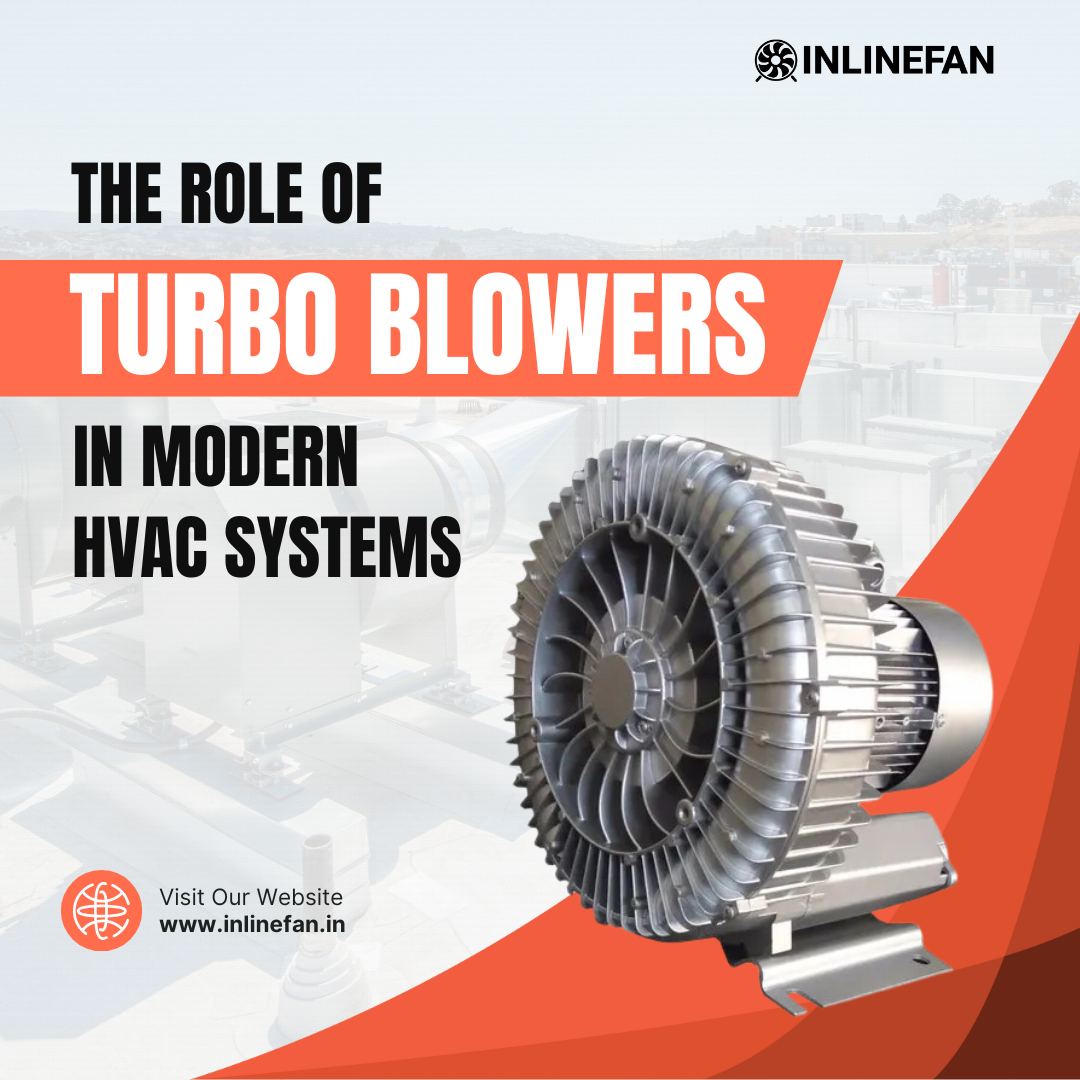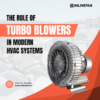
Role of Turbo Blowers
The role of turbo blowers in modern HVAC systems depends on effective airflow systems along with energy optimization measures to provide comfort while lowering operational expenses. The introduction of turbo blowers into HVAC systems marks one of the most groundbreaking advancements which transforms both airflow control and energy usage.
The modern heating ventilation and air conditioning systems use turbo blower technology to achieve better efficiency but what exactly are the features of this technology?
Features of Turbo Blowers
1) Turbo blowers function as dynamic air-moving devices that operate at high speeds to deliver pressurized air into HVAC systems.
2) The compressor uses an impeller to achieve high-speed rotation which compresses air before forcing it through duct systems.
3) Turbo blowers surpass regular air blowers by being lighter in weight and having smaller dimensions and they operate much more efficiently in energy use.
4) Turbo blowers operate through air-bearing or magnetic-bearing systems which minimize friction while reducing mechanical wear.
5) The equipment durability improves while maintenance expenses decrease when these devices operate in commercial and industrial environments.
6) The design of a turbo blower focuses on providing excellent performance with minimal energy use.
7) These blowers serve contemporary buildings to achieve steady temperature control across big complicated spaces.
Turbo blowers- At a glance
- The market for high speed turbo blowers has expanded because environmental regulations together with energy-efficiency standards have become more rigorous. The operational capability of these blowers extends to rotational speeds of 70,000 revolutions per minute (RPM).
- Such speeds allow for rapid and uniform distribution of air within various zones of a building. The blower system delivers greater pressure capacity together with enhanced airflow capacity in comparison to traditional centrifugal fans.
- The high speed turbo blowers function best in major HVAC systems which include malls as well as factories and airports. The speed modulation capability of these units according to load requirements brings substantial energy reduction.
- The smart control system automatically changes performance settings by analysing real-time feedback and system demand data.
- The system avoids throwing away energy during times when cooling or heating requirements remain minimal. The efficiency level produces substantial operational cost reductions through its application in buildings with varying occupancy patterns. The system’s compact design creates valuable space availability for mechanical rooms and rooftop units.
Functions of a Turbo Blower
- A turbo air blower functions as an essential element to deliver clean air into delicate locations such as hospitals and laboratories. The equipment enables accurate air flow control which maintains strict control over contaminants and particles.
- Turbo air blowers function as moisture regulators which enhances indoor air quality along with comfort levels. The optimization of humidity levels through these systems prevents material deterioration.
- These blowers find their applications in clean rooms as well as pharmaceutical facilities and semiconductor manufacturing units. The operation of turbo air blowers requires reduced oil and water consumption thus making them both cost-effective and environmentally friendly.
- These systems draw in ambient air without requiring additional cooling which results in substantial energy savings.
- The operation of turbo air blowers produces low noise levels because they generate minimal vibration and mechanical friction.
- These systems prove ideal for locations which need silent operation to protect both people and equipment.
- The reduced noise levels from their operation create better occupant comfort levels while assisting buildings to achieve green certification.
- Future-ready turbo blowers result from the combination of smart design principles with advanced materials and efficient control systems.
- Their adaptability in various HVAC settings proves their importance in sustainable building operations. The flexible design and performance advantages of these blowers drive engineers to construct HVAC systems around them.
- Modern automation systems use building management software to both monitor and control turbo blowers from remote locations.
- Real-time fault detection and preventive maintenance scheduling become possible because of smarter energy usage. Current eco-conscious construction practices benefit from the dual ecological and economic advantages provided by turbo blowers.
Contact Turbo Blowers Suppliers
Buildings targeting zero energy consumption should make turbo blowers their strategic choice. The return on investment for turbo blowers exceeds expectations because it delivers significant savings from both initial costs to long-term expenses.
Facility managers find value in the reduced downtime and enhanced reliability and improved air quality which these systems provide. HVAC technology will progressively adopt turbo blower systems as its fundamental direction for the future.




